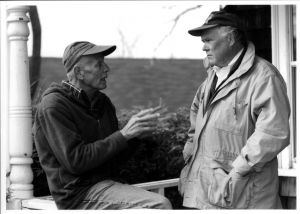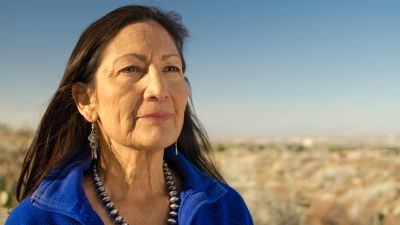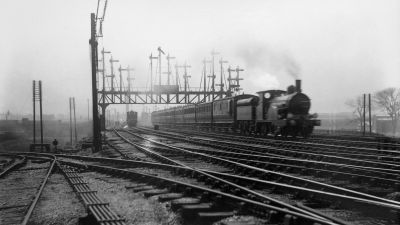When Robert H. Boyle speaks to Bill Moyers in the 2002 documentary America’s First River, it’s hard not to feel his long-standing passion and wonder for the 315-mile Hudson River.
Boyle, who passed away last month, was “the unofficial guardian of the Hudson River as a crusading conservationist,” The New York Times wrote in his obituary. A keen angler, Boyle was a reporter who wrote groundbreaking articles about pollution for Sports Illustrated in the 1960s and 1970s.
In 1965, Boyle joined a lawsuit against a proposed Consolidated Edison power plant at Storm King in the Hudson Highlands that claimed the plant would kill too many fish. “Their suit resulted in the first federal court ruling affirming the right of citizens to mount challenges on the basis of potential harm to aesthetic, recreational or conservational values as well as tangible economic injury,” wrote Sam Roberts in The Times.
When asked by Moyers what the Hudson River would look like if Con Ed had won the Storm King battle, Boyle replied, “You’d be looking at a river that had been gutted, that was sort of a squalid monument to stupidity and greed.”
Boyle went on to write The Hudson River: A Natural and Unnatural History, which was published in 1969. He was one of the first journalists to report that fish in North America were contaminated with PCBs in the 1970s and also wrote about global warming in his articles three decades ago.

Arthur Glowka and Robert H. Boyle (R), co-founders of the Hudson River Fishermen’s Association (photo: Riverkeeper)
He was a founding member and longtime president of Riverkeeper (formerly the Hudson River Fisherman’s Association), one of America’s first modern environmental organizations. The group has been a model for similar groups as part of the Waterkeeper Alliance, an umbrella group that fights for drinkable, fishable and swimmable water.
In the clip above from America’s First River, Boyle speaks with Moyers about the “marvelous diversity of life” in the Hudson, as well as the inspiration it has brought to writers and artists throughout its history.
In the film Moyers said activists like Boyle protecting the river “inspired thousands of other citizens to take part in cleaning up the Hudson” and to push for important environmental legislation like the federal Clean Water Act.
We can only hope that Boyle’s hard work will be protected in the same way he so lovingly protected the Hudson River.



